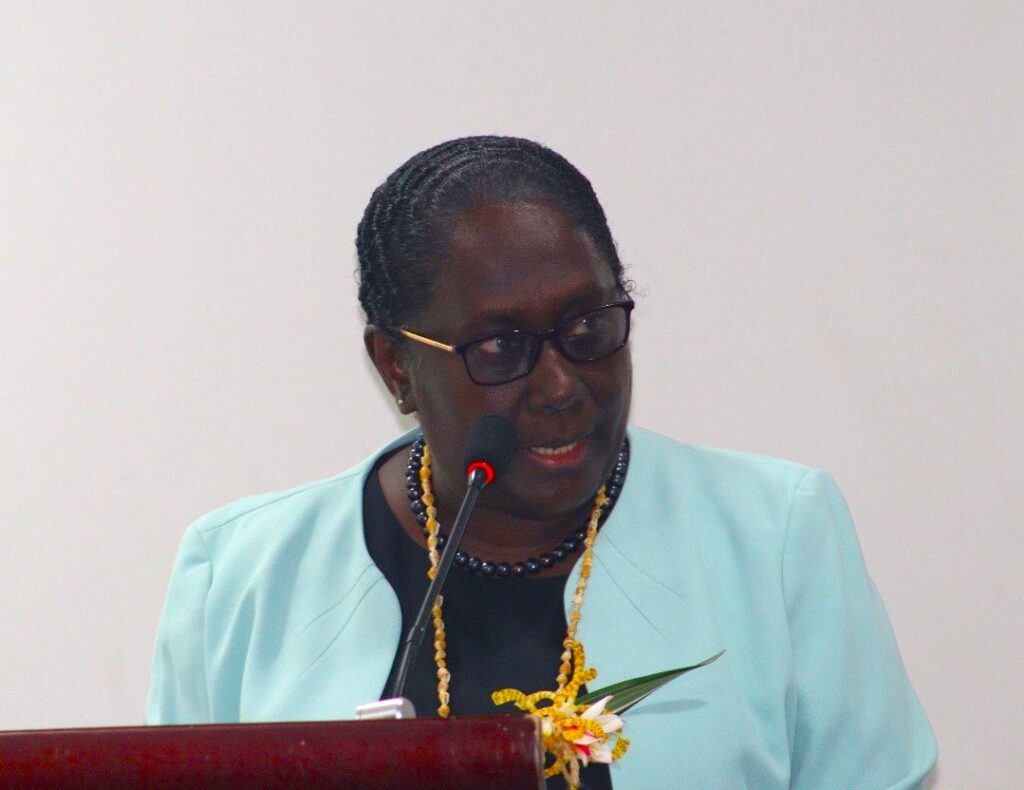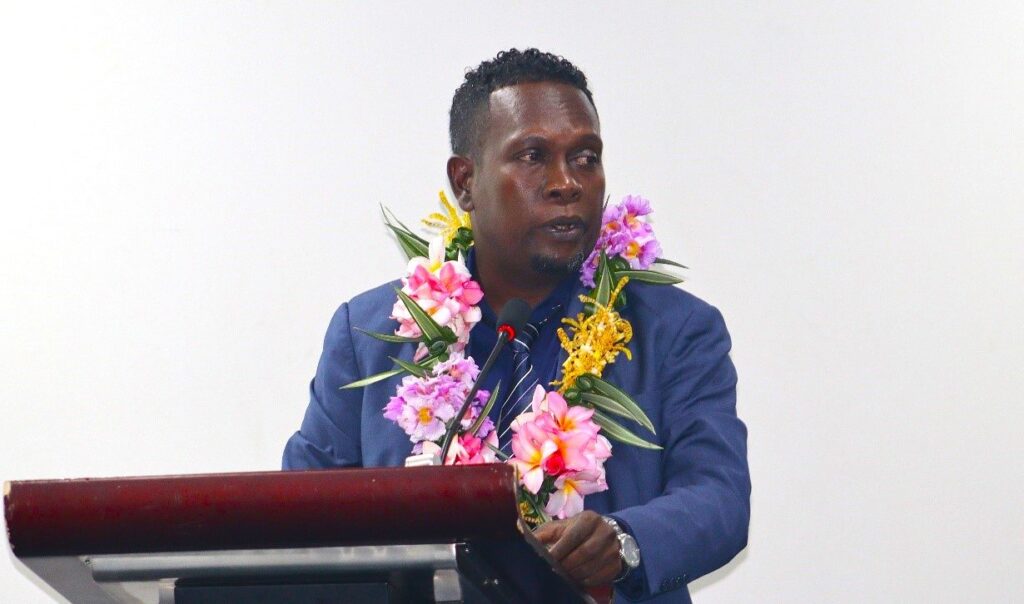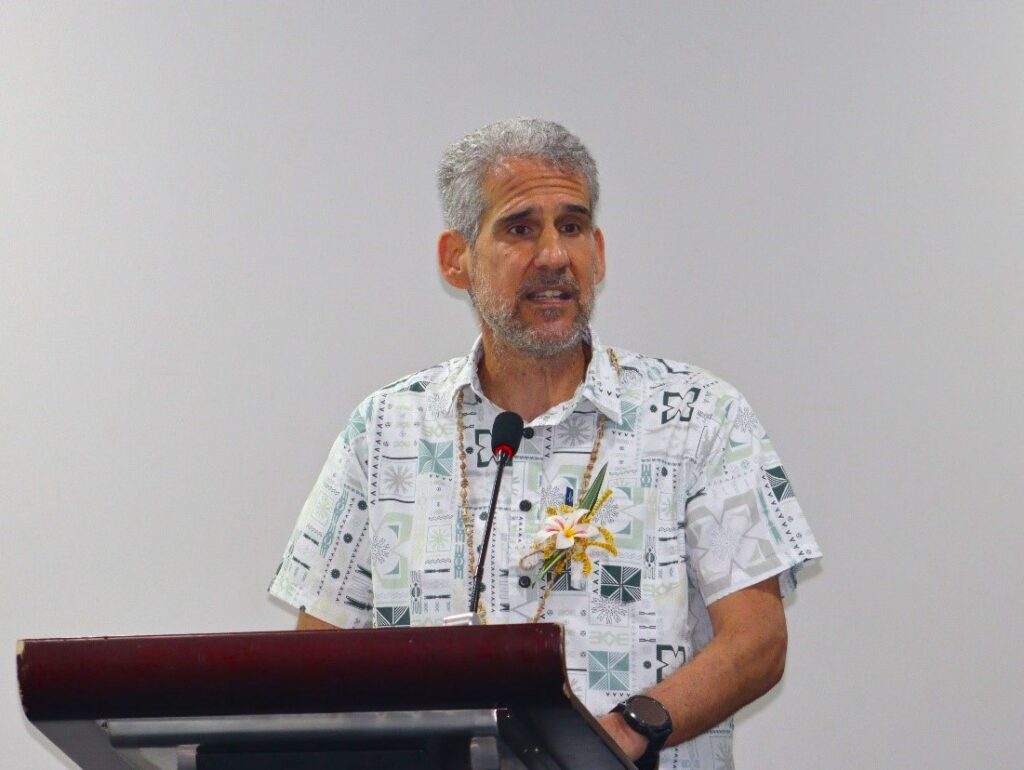
Health hosts Inaugural Joint External Evaluation process for Solomon Islands
Health hosts Inaugural Joint External Evaluation process for Solomon Islands
The Ministry of Health and Medical Services (MHMS) yesterday morning inaugurated the first ever, International Health Regulations (IHR), Joint External Evaluation (JEE) for the Solomon Islands, with the support from World Health Organization. The weeklong meeting brings together 17 international experts from around the world including representatives from the Republics of Timor-Leste, USA/Guam, Korea, Kenya, Finland, Vietnam, Japan, Slovakia, Fiji, Philippine, United Kingdom New Zealand and Australia who will review the country’s compliance to the IHR (2005), together with National technical experts from various government ministries, under 19 technical areas of the IHR.
The JEE is a voluntary, collaborative, multisectoral assessment of the country capacities to prevent, detect and rapidly respond to public health risks whether occurring naturally or due to deliberate or accidental events.
At the official opening, Health Permanent Secretary Mrs. Pauline McNeil welcomed the external reviewers and thanked them for availing themselves to share their wealth of experiences, expertise and global knowledge.
PS McNeil conveyed her sincerest welcome to the ministry’s points of contacts, the relevant government and partner Ministries including border security, biosecurity, immigration, education, AG chambers, and Development Partners, who were in attendance and acknowledged their expertise on the ground and tireless efforts on the initial process including the internal self-assessments as without the internal self-assessment on the ground, the external assessment and evaluation could not have taken place this week.
The Ministry of Health’s request for the JEE process begun in February of this year and knowing that the schedule on the process was tight, between then and now, PS McNeil mentioned that “the Ministry was determined and continues to do so to bring the JEE process to its full completion. Our decision to engage in the Joint External Evaluation process is a first for the nation, underscoring the country’s urge and readiness to strengthen its health systems and emphasizing its commitment to global health security” In ensuring that process comes to full completion, the Ministry is grateful to World Health Organization for the continuous technical assistance and support in the initial process of the JEE
In concluding her welcome remarks, Permanent Secretary stressed that “Solomon Islands participation in the JEE sets a precedent for a Whole of Government, ONE Health approach, supporting collective strength and unity towards improved health security in the areas of Human Health, Animal Health and Environment Health. This initiative will boost the combined commitment to enhancing One Health approach to health security, locally in our provinces and communities while at the same time attending to the global mandates”

MHMS Permanent Secretary Mrs McNeil
In his keynote address, Health Supervising Minister, Hon Wayne Ghemu described JEE as a guiding light towards resilience, preparedness, responsiveness and global and national-well-being.
“So why does the JEE matter? The Joint Evaluation matters because firstly, within our own borders, the JEE serves as a mirror – constant reflection of our health security systems. Which allows us to identify vulnerabilities, prioritize needs, and fortify our defenses for threatens our National Health Security.
“As we rebuild from the challenges of a pandemic and the recent Covid pandemic not so long ago, the JEE beckons us to reexamine, recalibrate, refocus and redirect to a have the systems and structures in a Whole of government, multisectoral and whole of society approach; in place to mitigate the effects of health emergencies and events that affects our nation and people”, said Hon. Ghemu.

Supervising Minister for Ministry of Health and Medical Services and Minister for Provincial Government and Institutional Strengthening, the Hon Wayne Ghemu
“The JEE also matters because of the global mandate attached to it. It extends beyond our national boundaries. Therefore, it is a global mandate- an unwritten pact among nations, that is covered in the International Health Treaty that the country committed to in the signing of the International regulations 2005.
“The International Health Regulations (IHR) (2005) provides a legally binding international framework to strengthen national and global capacities in preventing, detecting, and responding to public health threats. The Joint External Evaluation (JEE) is a key component of the IHR Monitoring and Evaluation Framework (IHR MEF), allowing countries to assess their health security capacities in a collaborative, voluntary, and multisectoral manner.
“Solomon Islands is committed to this process as part and parcel of our broader health security efforts, ensuring our readiness to address threats such as pandemics, zoonotic diseases, chemical, and radiation hazards. When we commit to the JEE, we pledge solidarity with every corner of the world. We recognize that health threats know no borders; they respect no sovereignty.
“Our participation here today demonstrates our engagement with global the community on health security initiatives, reinforcing our international partnerships and our country obligations. Our collective strength lies in our shared resolve—a resolve to protect, to prevent, and to prevail”, said Hon. Ghemu.
Honorable Ghemu thanked WHO for accepting the ministry’s request to conduct a JEE and for having the confidence in the MHMS to take lead, and by providing technical expertise in Dr Peter Mertens, Dr Yorgos and WHO country team in guiding the ministry during the Self-Assessment phase of the JEE.
The Supervising Minister voiced his appreciation of the great amount of work that of the comprehensive evaluation spanning 19 technical areas and 56 indicators. He echoed a special thank you to the Points of Contacts (PoCs) from the Ministry of Health and respective Government Ministries and sectors both private and non-government for each of the 19 technical areas as they played a crucial role in the JEE process.
He further stated it is important as a country that as we look at our capabilities across 19 technical areas, grouped into four broad categories of: 1. Prevention, 2. Detection, 3. Response, 4. IHR Hazards (Radiation and Chemical) and Points of Entry through the thorough analysis of your technical areas we look on what can be built from strengths and areas requiring improvement.
“The Ministry of Health Senior Executive Management Team looks forward to the outcomes of the meeting and the final report that will be produced and the subsequent actions as the development of the National Action Plan for Health Security that we will undertake collectively after the JEE, which will help us prioritize key actions, mobilize necessary resources, and build a resilient health system capable of effectively preventing, detecting, and responding to public health threats”, said Hon. Ghemu.

World Health Organization, Country Representative, Dr Howard Sobel
Meanwhile, World Health Organization, Country Representative, Dr Howard Sobel said the JEE is not just a technical exercise; it is an opportunity to come together as a country, to critically assess our capabilities, and to align our efforts towards a safer and healthier future.
“It allows us to measure our readiness to prevent, detect, and respond to health emergencies across the 19 technical areas defined by the JEE tool under the International Health Regulations (IHR 2005). This evaluation is essential to ensuring that all sectors are prepared to face the complex health challenges”, said Dr Sobel.
He stated what makes the process even more powerful is its collective nature.
“The JEE is not the sole responsibility of the Ministry of Health. Health security requires the collective strength of all sectors. The One Health approach reminds us that human, animal, and environmental health are interconnected, and solutions to our most pressing challenges—such as antimicrobial resistance (AMR), infection prevention and control (IPC), and food safety—demand coordination across sectors”, said Dr Howard.
The external reviewers will have the opportunity to visit some health facilities in and around Honiara including the National Referral Hospital and the National Public Health Laboratory, and also take time to travel to a couple of Provinces. The JEE review concludes this coming Friday, 27th September 2024
End///…
Distribution channels:
Legal Disclaimer:
EIN Presswire provides this news content "as is" without warranty of any kind. We do not accept any responsibility or liability for the accuracy, content, images, videos, licenses, completeness, legality, or reliability of the information contained in this article. If you have any complaints or copyright issues related to this article, kindly contact the author above.
Submit your press release